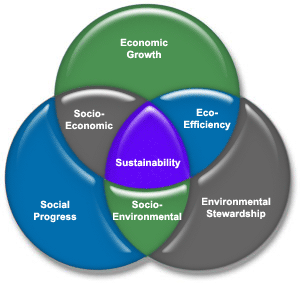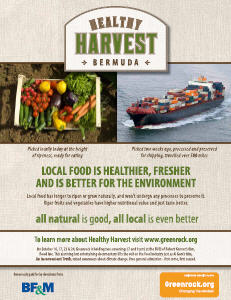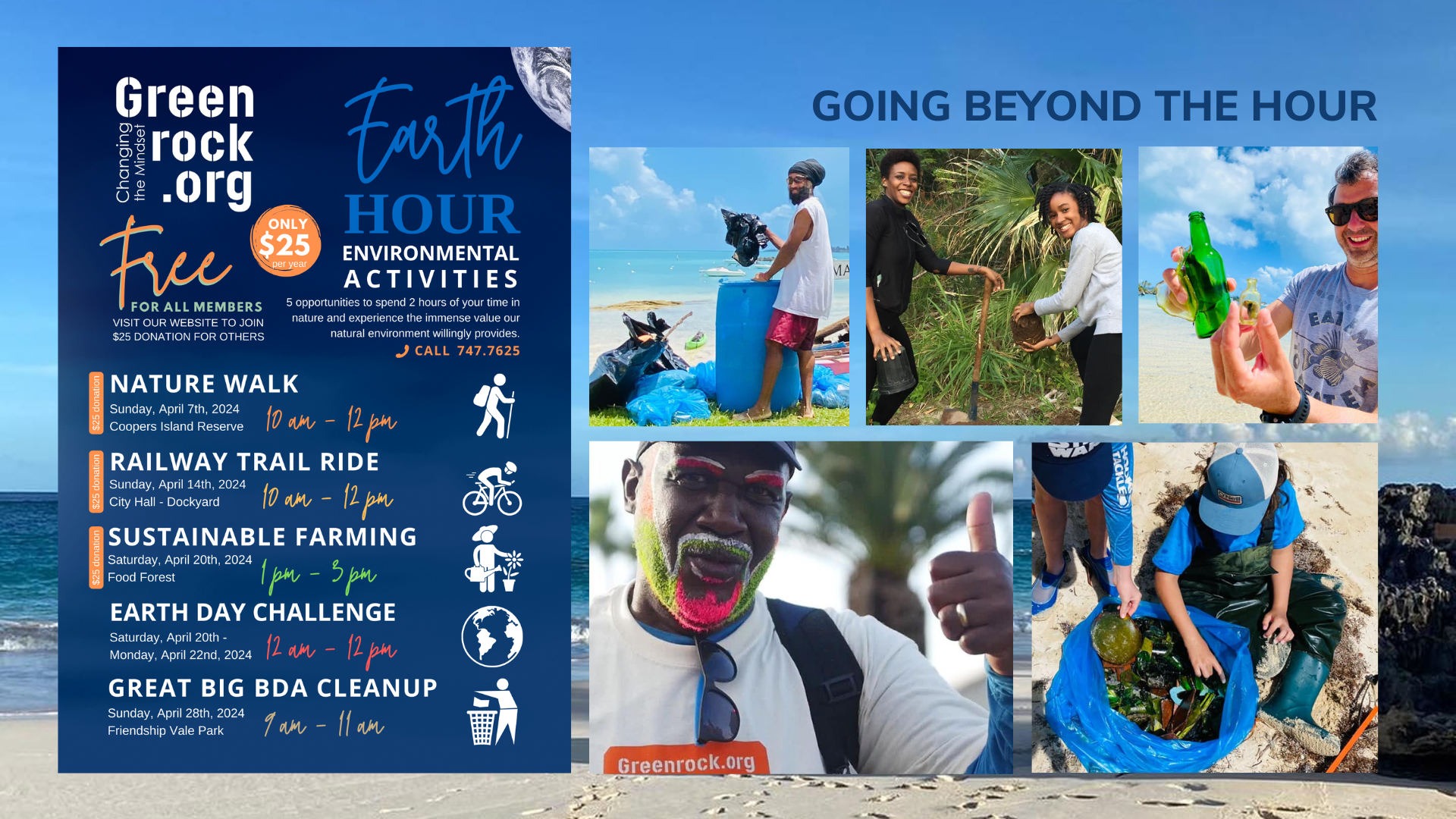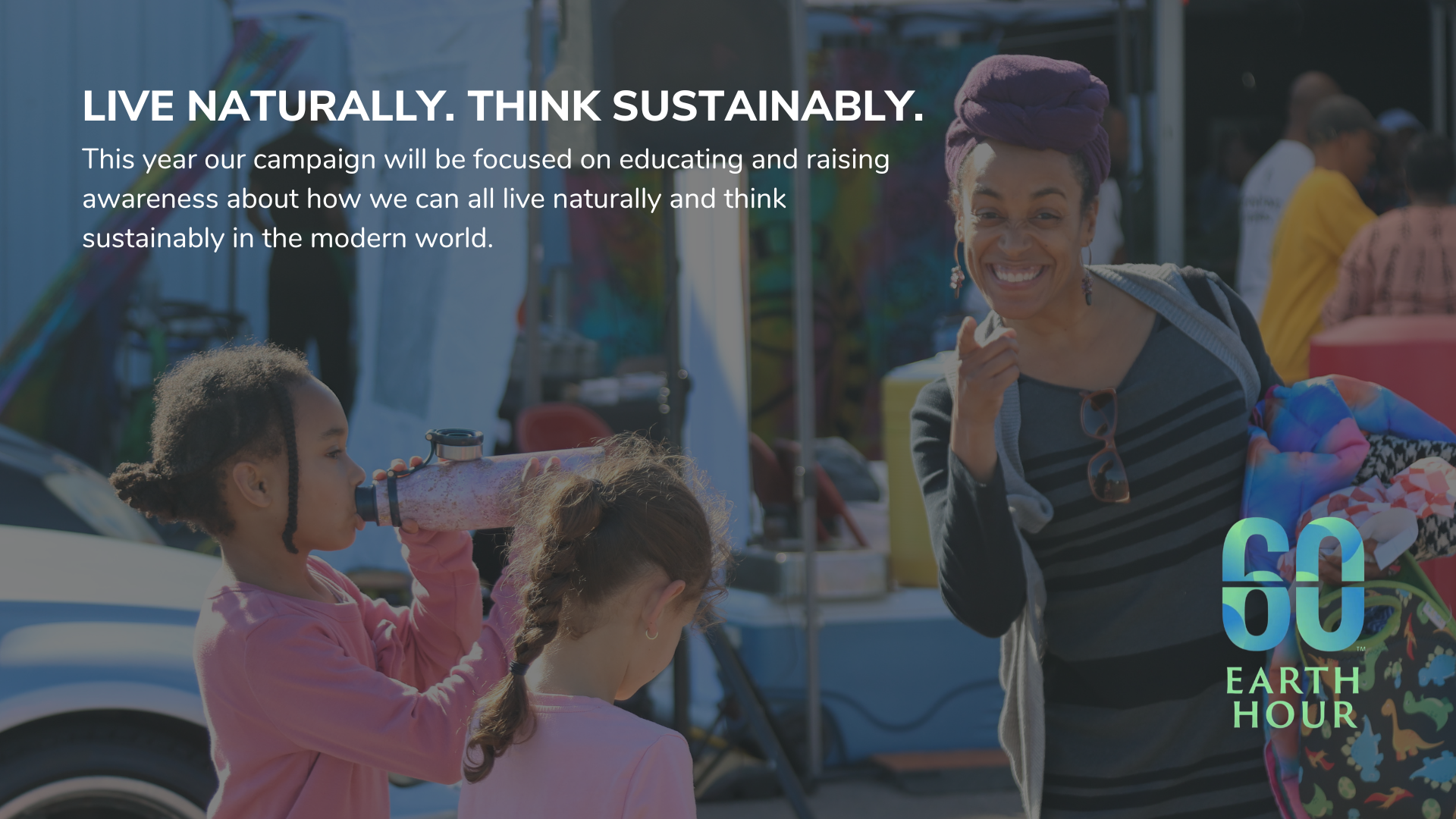Since 2005, Greenrock has been reaching into the community expressing that we need to start ‘Changing our Mindset’ when it comes to making sustainable lifestyle choices. Acting as a catalyst for meaningful change, we have hosted public forums, created events to showcase eco-friendly products, published articles on energy saving appliances, given advice to both the private and public sector on green building, energy conservation, renewable energy, water conservation, alternative green transportation, biofuels, and much more.
During this time, we have successfully encouraged use of reusable shopping bags, help make Compact Florescent Lightbulbs (CFLs) affordable, increase the variety of eco-friendly home products, pushed interest into renewable energy systems, and stimulated the media focus on ‘going green’. But much more is needed from both the private and public sector when It comes making meaningful change. Ultimately, the responsibility falls on everyone who resides in Bermuda – rich or poor, black or white, Bermudian or expat.
In our current Greenrock School Road Show, we have created an interactive presentation targeted to middle and senior school students which educates them on ways one can live in Bermuda in a more sustainable way. Eugene Dean, who is the moderator for our School Road Show, uses an analogy of a fish in a fish bowl to help explain why sustainable development is important. As more fish are added to the bowl, the environment becomes less comfortable – more competitive for food, more waste released in the water, and less room to swim and breath. Over time, this living environment will slowly kill the fish.
This analogy is effective in making the case on why sustainable living is important to Bermuda. Living in Bermuda is like living in a ‘Fish Bowl’ when you consider the reality that there is limited space. And as the island population increases (whether visiting or residing), the impact of this growth is constantly placing pressure on the environment we live in. Over time, this pressure translates into economic, environmental, and social factors that make the quality of life on this island unaffordable.
 In 2005, the Bermuda Government completed the draft of the Sustainable Development Implementation and Strategic Plan. The object of this Plan was to chart the course for Bermuda’s future development and to create framework on how Government could monitor its progress and attempt to influence long-term outcomes. A lot of money, man-hours, and research went into pulling together historical studies, talking leading local thinkers, and consulting with key stakeholders in the public and private sectors. The draft copy highlighted both the challenges and necessary action steps this Plan would face in order for it to be effectively implemented. In 2008, the Plan was accepted by Cabinet and implemented.
In 2005, the Bermuda Government completed the draft of the Sustainable Development Implementation and Strategic Plan. The object of this Plan was to chart the course for Bermuda’s future development and to create framework on how Government could monitor its progress and attempt to influence long-term outcomes. A lot of money, man-hours, and research went into pulling together historical studies, talking leading local thinkers, and consulting with key stakeholders in the public and private sectors. The draft copy highlighted both the challenges and necessary action steps this Plan would face in order for it to be effectively implemented. In 2008, the Plan was accepted by Cabinet and implemented.
One of the essential challenges overlooked in the Plan is the fact that elected officials need to have the ‘political will’ to ensure this Plan is strictly upheld in any policy or capital project created during their term of office. Ideally, once a Government is able to lead the community by example and provide the framework where sustainable ideas and products can be competitively introduce, then the consumer is empowered to make choices.
To help illustrate the importance of sustainable living in Bermuda, lets examine in general terms how the quality of life in Bermuda is dramatically affected by three consumption areas: Energy, Transportation, and Food.
ENERGY
 Bermuda has one of the highest hourly kilowatt rates in the world. Bermuda’s dependency on oil and propane gas to generate its electricity is primary reason behind this high rate. The volatile pricing of this fuel was recently experienced in June 2009 when oil prices reached $150 a barrel. Bermuda had experienced the same volatility in the mid 70’s during the OPEC crisis. During the mid-70s, solar thermal units were introduced to the Bermuda consumer with the incentive to offer relief on duty on the cost of just the solar panel. None of the other component parts of this solar system would receive duty relief. Obviously, this made this renewable energy source too expensive for most Bermudians.
Bermuda has one of the highest hourly kilowatt rates in the world. Bermuda’s dependency on oil and propane gas to generate its electricity is primary reason behind this high rate. The volatile pricing of this fuel was recently experienced in June 2009 when oil prices reached $150 a barrel. Bermuda had experienced the same volatility in the mid 70’s during the OPEC crisis. During the mid-70s, solar thermal units were introduced to the Bermuda consumer with the incentive to offer relief on duty on the cost of just the solar panel. None of the other component parts of this solar system would receive duty relief. Obviously, this made this renewable energy source too expensive for most Bermudians.
By 2009, as part of the Government’s national Energy Plan, customs changed the duty tariff so that duty relief would be offered on the full solar systems as long as the Bill of Landing documented all the components in the system. The savings generated from this could help lower the cost of importing these goods. Even the local electric utility company (BELCo) introduced a net-metering agreement to ensure the rate for energy the consumer bought from BELCo would be equivalent to the rate for energy purchased back from the consumer by BELCo – creating a net zero sum gain for the consumer. The Bermuda Government’s Department of Energy also provided further incentives to consumers that could help offset the cost of the installation.
Early adopters are helping both Government and local entrepreneurs in the renewable energy business work through the challenges of getting renewable technologies established in Bermuda. Compared to the 70’s, a great deal of progress has been achieved, yet there are still many more hurdles to cross in order to make this technology sustainable for Bermuda’s future. Such things as providing a more comprehensive way to process installation requests through Planning, ensuring the duty tariff relief is applied to the materials needed to sustain renewable technology over the long-term, explaining how this technology will be processed as when it becomes waste, or even outlining how energy generated from renewable sources will be tied to the grid network to order to offset current and project peak load demands
TRANSPORTATION
 There is no argument that Bermuda has a limited roadway system. Yet, we continue to challenge this fact by adding more vehicles – trucks, cars and bikes. We are seeing growing traffic bottlenecks across the island during different times of the day. Air quality studies around traffic congestion areas have proven health impact produced by gas guzzling vehicles.
There is no argument that Bermuda has a limited roadway system. Yet, we continue to challenge this fact by adding more vehicles – trucks, cars and bikes. We are seeing growing traffic bottlenecks across the island during different times of the day. Air quality studies around traffic congestion areas have proven health impact produced by gas guzzling vehicles.
Bermuda has recently reinvented its public transportation network. Starting in the late 90’s, our ferry system was upgraded in hopes to alleviate the traffic strain on key roadways leading into Hamilton. The fast ferries created excitement around public transportation but it may have come at price considering the long-term costs to operate and maintain these vessels compared to the older ‘work horses’ they replaced. Due to the lower patronage, certain routes had to be cancelled or rescheduled due to the cost of operation. Even the new buses, custom built for Bermuda, are expensive to operate and maintain.
Our transportation challenges increased when Government removed the restrictions on private car ownership. Today, most people have become accustomed to the convenience and status car ownership and this trend can be found in many countries. Unfortunately, in the last two decades, we have seen our Government’s fleet of vehicles dramatically rise in the size and class of vehicle.
We need to look at affordable ways people can commute in Bermuda without having to own a car. Fractional ownership of a car, car clubs, driving clubs, or car-pooling are all ways shared transportation could be created to compliment existing public transportation.
With size of our island and speed limits, Bermuda is a perfect location for all electric vehicles – scooters, cars, trucks and buses. Greenrock has published many articles on our website (www.greenrock.org) on why all electric vehicles makes sense for Bermuda compared to hybrids when it comes to maintenance, cost of running, and waste disposal. We have also discussed ways that you can flex-fuel vehicles that are powered by biodiesel or ordinary vegetable oil. And by using renewable energy source to recharge your vehicle, you are able to dramatically lower your carbon footprint. Government should show leadership when it comes to adopting all electric and bio-fueled vehicles in their fleets.
FOOD
 Greenrock recently premiered the film ‘Food, Inc.’ in Bermuda as part of our public launch of our ‘Healthy Harvest’ project. This documentary film highlights how the consumer is unaware that most food sold in North America is manufactured by a handful of multinational corporations in an unnatural, unhealthy, and unsustainable way. And that the only way to combat this trend is for the consumer is to ‘vote’ each time they go to the check out counter by buying nutritionally rich, locally grown foods. And by voting with your wallet, large distributors retailers, like WalMart, can help slowdown and possibly reverse how food is produced.
Greenrock recently premiered the film ‘Food, Inc.’ in Bermuda as part of our public launch of our ‘Healthy Harvest’ project. This documentary film highlights how the consumer is unaware that most food sold in North America is manufactured by a handful of multinational corporations in an unnatural, unhealthy, and unsustainable way. And that the only way to combat this trend is for the consumer is to ‘vote’ each time they go to the check out counter by buying nutritionally rich, locally grown foods. And by voting with your wallet, large distributors retailers, like WalMart, can help slowdown and possibly reverse how food is produced.
Bermuda’s food supply is heavily subsidized by what is imported into Bermuda. Over the last 10 years, there has been a growing presence of organic foods appearing in the aisles at local grocery stores. Yet, the cost of organic food is not always affordable to everyone. Through community and kitchen gardens, more households can benefit from eating organic foods.
Since we import everything, we have a better chance of controlling the types of food made available on the island. Currently, our Government creates embargos to ensure locally produced foods are sold instead of those imported. We can use this same power to ensure certain types of food are restricted or levied a higher duty.
The variety of foods produced in Bermuda and made available in grocery stores has declined over the years. Plus, more generations of Bermudians and those visiting the island are not exposed to unique taste of locally produced foods and how food is produced in Bermuda. Healthy Harvest initiative is focused on achieving three things: (1) restoring the understanding on why eating locally produced foods is good for you and for Bermuda; (2) creating community gardens and orchards across Bermuda to increase the variety of produce available for purchase, and; (3) to expose more people to planting, harvesting and tasting locally produced foods.
Greenrock has learned, just as World Wildlife Fund (WWF) is trying to achieve globally through their Earth Hour campaign, that it long-term, sustainable change will only occur when individuals act together for the common good of the planet. The same is true for Bermuda. We need to all work together to help make Bermuda a more sustainable place to live from an economic, social, and environmental perspective. And Greenrock’s mission is to continually help focus the community on the sustainable ideas suitable for island life in Bermuda.




